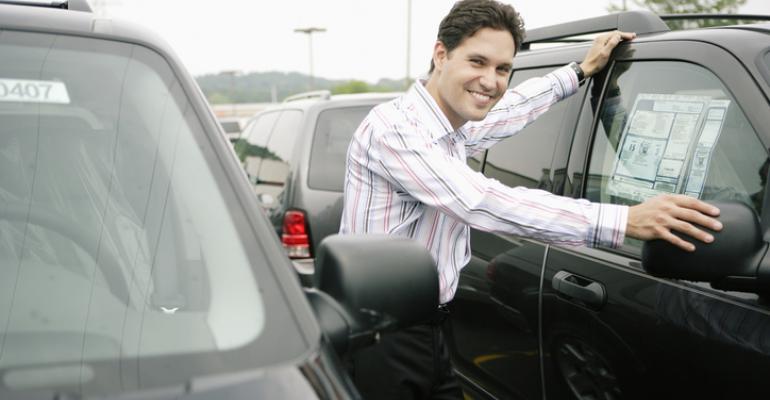This year already is one for the history books.
The COVID-19 pandemic impacted nearly all industries and aspects of life, and the automotive sector was not spared.
At this point, we might have more questions than answers when it comes to the long-term impact of virus on how we manufacture, sell, buy and use cars. Let’s dive into some of these issues and look at how we got to this point.
Supply Catching up to Demand. But for How Long?
The pandemic brought global manufacturing to a historic halt. Only about 4,300 vehicles were produced in North America in April, the lowest since 1943.
As facilities reopen, manufacturers must keep workers safe. For many, this means having less staff on-site to adhere with social-distancing regulations. There will be delays caused by regularly disinfecting equipment.
As automakers work to make up lost ground, consumer demand is already ahead of them. While many showrooms experienced temporary closures at the height of the pandemic, most were still able to continue selling.
Now, we’re looking at an interesting situation where low dealer inventories are taking longer than usual to be replenished while customers emerge from quarantine and seek out new rides. It could take months for supply to catch up to demand.
However, the threat of a global recession could throw a wrench in that, making this sales bounce-back short-lived.
If we enter a recession or even a depression, more buyers strapped for cash might look to scoop up a used model or even hold onto their current vehicles.
If this is the case, expect the service, parts and aftermarket industries to see an increase in business activity, as car owners repair rather than replace.
How Much Will Car-Selling Change?
Car dealers in the most impacted sections of the country were forced to shutter their showrooms when the pandemic took hold.
In order to compete with online-only retailers like Carvana, many dealerships adopted more robust and customer-friendly digital sales practices.
This included at-home test drives, virtual walk-arounds and expanded online chat. The showroom experience, dreaded by many and considered in some respects to still be mired in the 1950s, finally joined us in the 21st century.
Customers already accustomed to digitally buying so much from the comfort of their homes may come to expect some of these virtual car-buying practices in the post-pandemic world.
The option to unveil new models at big auto shows was removed from the equation due to the pandemic.
While cancelled shows and events may have disappointed enthusiasts, it might not have been too big of a loss for some auto companies. Over the last few years, we’ve seen more than a few of them opt out of attending every car show and instead use social media and innovative advertising to create buzz for their new models and features.
While car shows will not go away entirely, the pandemic has caused many industry people to wonder if the traditional auto show is dead.
Return to Personal Transportation?
Many city-dwellers who gave up their cars for public transit and ridesharing found themselves with no safe means of transportation.
If the ridesharing crowd starts to migrate back to car ownership or consider it for the first time, it could have long-term impacts.
Car subscription services, which offer an alternative to leasing or outright buying but still give the consumer access to a personal vehicle, could see an upturn as city-dwellers look to drive again.
Finally, while many people might have forgotten about what was touted as the next big thing five years ago, development of self-driving technology still has been going on behind the scenes.
 As consumers look for safe ways to get around, we might see a rise in interest around self-driving pods as an alternative to taxis, buses and ridesharing. (Richard Reina, left)
As consumers look for safe ways to get around, we might see a rise in interest around self-driving pods as an alternative to taxis, buses and ridesharing. (Richard Reina, left)
As we look ahead to the rest of the year and back in time for context, those of us who keep a keen an eye on industry trends sure have our work cut out for us.
Richard Reina is product training director at automotive parts and accessory provider CARiD.com





